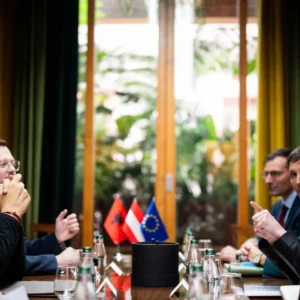On April 29, 2025, the European Court of Justice (ECJ) issued a landmark ruling prohibiting European Union member states from granting citizenship in exchange for money—the so-called “golden passports.”
In its ruling, the court clarified that EU citizenship cannot be bought, but must be based on a genuine link between the citizen and the state. A purely financial transaction is not sufficient. The Tirana Times described the ruling as a “clear break with years of practice by individual states.”
Malta, which served as the most prominent example of such a program, is particularly affected by the decision. However, the ruling’s implications extend beyond the island nation—it is also of great significance for potential accession candidates such as Albania.
Albania had planned its own investor program
As reported by Balkan Insight and citizenx.com, Albania had already amended its citizenship laws in 2020 to allow foreign investors to become Albanian citizens on grounds of “special national interest.” The aim was to attract new capital flows into the country through a “citizenship by investment” model. However, the plan met with early concerns from the EU.
In Brussels, security risks, possible violations of visa liberalization agreements, and the general undermining of European values were cited. In response to this criticism, Prime Minister Edi Rama announced in March 2023, according to the Tirana Times, that the program would be put on hold for the time being, pending the ECJ ruling, which has now been handed down.
EU sends clear signal
The ruling on the Maltese program, which according to Travel + Leisure has already led to concrete legal proceedings, is considered a clear precedent for all EU members and candidate countries. The message: citizenship is not a commercial product, but an expression of a deeper political and cultural belonging.
For Albania, this means that such a path to attracting investors is incompatible with the fundamental principles of the EU. The Tirana Times emphasizes that any future move toward a similar model could provoke massive political resistance and even jeopardize the EU accession process.
Consequences for EU rapprochement
The government in Tirana will have to align itself more closely with EU standards in the future, particularly on issues of citizenship and internal security. The ECJ’s decision makes it clear that the protection of European values takes precedence over short-term economic interests.
As Vasil Partners and Visa to Travel analyze, Albania may now be forced to develop alternative strategies to attract foreign investors, such as tax breaks, special economic zones, or long-term residence programs without the prospect of citizenship.
Ultimately, the ruling serves as a reminder that the path to EU membership requires not only technical reforms, but also a state’s internal attitude toward democratic rule of law – a point that Albania has already publicly acknowledged, according to the Albanian Daily News.
Conclusion
The ECJ ruling on “golden passports” sends a strong signal for the integrity of European values. For Albania, this means that anyone who wants to become part of the Union must also commit to its principles – visibly, bindingly, and without shortcuts.














Recent Comments